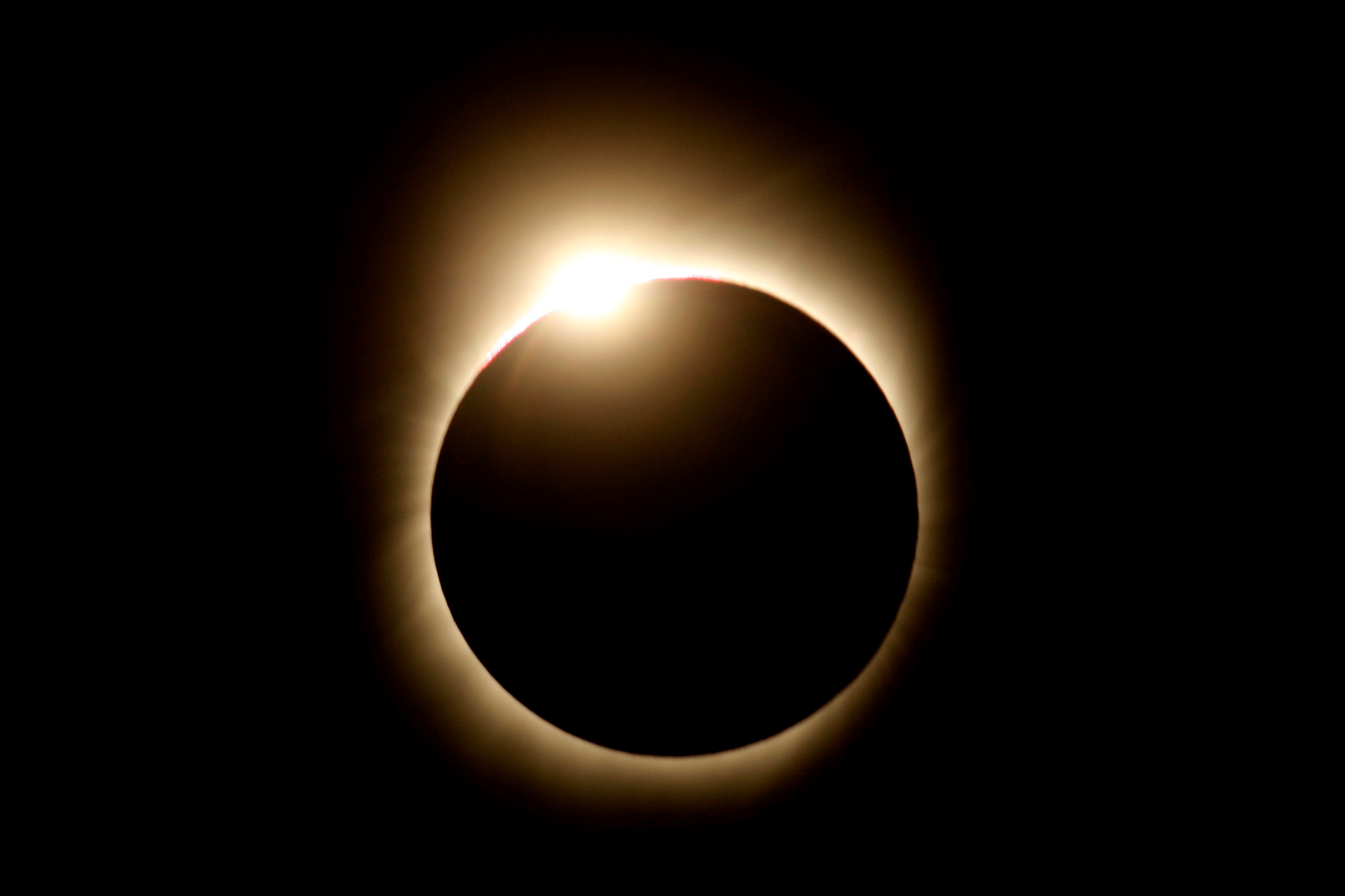In a world divided by hashkafic differences, an out of the ordinary experience brought Jews across the spectrum together out of a common interest.
As one of the last locations in the United States to view the eclipse in its totality, and one of the only cities on the east coast to view this rare sight, people from across the country converged on Charleston, South Carolina, a city famous for being the top tourist destination in the United States.
Weeks before the eclipse, hotel bookings for eclipse day were sold out, and rumor had it that the rare one that became available was going for $1,000 a night. Some Charlestonians decided to rent out rooms in their houses for the steep price of $600 a night- many were eagerly scooped up. The city braced itself for a million tourists.
Frum Jews were among the crowd. They arrived from Flatbush, Rochester, the Baltimore area and as far away as Los Angeles and Israel. There were chassidim from Williamsburg, yeshiva students from Lakewood, a large representation from a shul in Rockville, Maryland and world-renowned speaker, Erica Brown. Some came out of a fascination with science, others out of an urge to see “nissim and niflaos of Hashem” but what united them was they felt this was a once in a lifetime event they did not want to miss.
Dorit Nelson from Los Angeles watched the eclipse at Brith Sholom Beth Israel Synagogue with her husband and children. Her brother watched it in Portland, another brother in Jackson Hole and a cousin watched it in St. Louis. “You felt you had to see it,” she said. Michele and Yoni Kirschner of New York agreed. When they couldn’t get a hotel room in Charleston, they flew to Kansas City, Missouri so as not to miss the experience.
Dr. Jeremy Brown, author of an article about eclipses in Jewish law and thought, spoke about the topic at BSBI Synagogue on Sunday evening to a crowded sanctuary. Contrary to the excitement about the eclipse, he said the Gemara actually teaches that an eclipse is a “siman ra”- a bad omen, which occurs because of our bad deeds. While some achronim take the approach that the Gemara isn’t referring to an eclipse at all, but to sun spots, other rabbis, such as current Chief Rabbi Dovid Lau take it a step further and admit they view eclipses with a sense of wonder, even wishing they could say a bracha when seeing one. Dr. Brown also quoted the Lubavitcher Rebbe who said that it is not our behavior that determines whether there will be an eclipse, but that our behavior determines what the weather will be the day of an eclipse and whether it will allow us to see the eclipse. According to that theory, a cloud cover would be a sign of good behavior.
If that’s the case, some Jews in Charleston have some teshuva to do because there were some areas where the clouds moved aside just for a moment so the viewers could watch totality in its magnificence.
BSBI, in downtown Charleston was not one of those places. The viewers there watched in fascination as the moon slowly inched to cover the sun but at the exact moment of totality, as the streets turned to dusk, the clouds covered the moon, obscuring view. Perhaps, a good omen.
The unpredictability of the weather is one reason that Barbara Gorsch and her family, from Rochester, New York chose Charleston as the location for where to watch the eclipse. With all the expense related to traveling on such an in-demand weekend, they figured they could at least enjoy the beauty and attractions Charleston had to offer if the weather blocked the view of the eclipse.
Others chose to watch the eclipse in Charleston for other reasons. Ezra Ogorek and Joel Balavtam, both in their seventies, drove down from Brooklyn and felt they wanted to watch this miracle of nature, together with other Jews from across the country. Eating at BSBI’s barbecue with other Jews from across the hashkafic spectrum, reclining and watching the eclipse was more than they could have asked for.
Four chassadim from Williamsburg also came for the religious inspiration. “To see maaseh Hashem, nifla’os ha’boreh,” said Aron Kohn, “It was awesome, so worth it.” This, despite the thirteen-hour train ride he and his friends will be embarking on to return back to Brooklyn.
Mordechai Ovits also came from Brooklyn to watch the eclipse but for different reasons. A self-proclaimed “science nerd,” he felt he could not miss the opportunity to see totality. He calculated to the tenth of a second when totality could be expected at the exact latitude and longitude of the shul and kept everyone informed about what they should know at every stage.
Chaim Kruger of Baltimore came with his uncle, Mordechai Kruger of Far Rockaway. Chaim’s community rabbi, Rav Dovid Heber is a renowned scholar of astronomy and was leading an eclipse tour in St. Joseph, Missouri. Inspired by his rabbi, they made the trek to Charleston. “Many Rabbanim wonder why people chase eclipses, he said. “The Chovos HaLevavos says we should see amazing events as a reminder that each time the sun rises and sets and each time the moon cycles, this too is a miracle. The nissim ha’geluyim reveal the nissim ha’nistarim.”
As Dr. Jeremy Brown said as he ended off his shiur, whether you see the eclipse as a siman ra or a sign of the amazing hand of Hashem, it is certainly an event to remind us of the power of Hashem to kick start our Chodesh Elul the right way.
The words of this author reflect his/her own opinions and do not necessarily represent the official position of the Orthodox Union.

